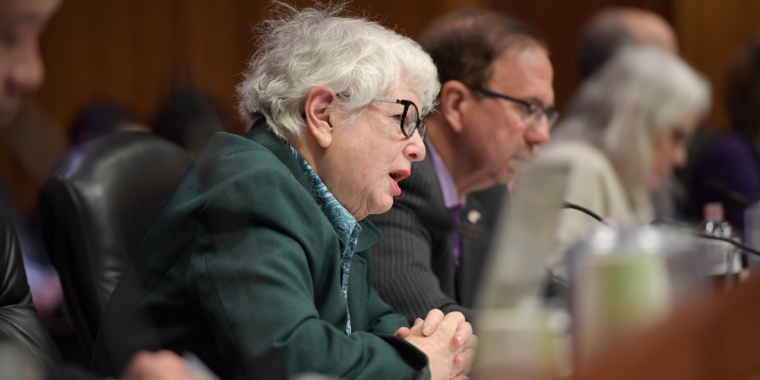
Senator Toby Ann Stavisky Lauds Senate Passage of Higher Education Proposals by the Democratic Majority for the 2021-22 Fiscal Year
March 19, 2021

ALBANY, NY- Over the past year, New York’s collegiate institutions have navigated campus shutdowns, remote learning and other obstacles associated with the COVID-19 pandemic. As our state emerges from this crisis the Senate Majority is moving forward with a transformational increase in resources to ensure that higher educational systems can better serve the students who are enrolled in their programs.
“The world of higher education is rapidly evolving, especially in the wake of the COVID-19 pandemic,” says Senator Stavisky, Chair of the Senate Higher Education Committee. “Right now we must reinvest into our SUNY, CUNY and the independent colleges as well as in our students. By addressing the Tuition Assistance Program and the growing TAP Gap (the difference between the actual tuition cost and the TAP award), this proposal ensures our institutions remain accessible and affordable, without sacrificing the quality of the education they provide.”
Here are the higher education highlights from the Senate Majority one-house state budget proposal:
- Providing an additional $174 million in the 2021-22 academic year for reforms to the Tuition Assistance Program by raising the maximum award by $1,000 from $5,165 to $6,165, recommitting public support to both our public and private sector of education.
- Closing the $148 million TAP Gap at SUNY and CUNY, providing a much needed infusion of operating support to our public colleges.
- Providing an additional $30 million for community college base aid at SUNY and $13.6 million at CUNY, a $250 per FTE increase from $2,947 to $3,197, with each campus guaranteed to receive 98 percent of the prior year based aid amount.
- Providing $4 million to CUNY and $4 million to SUNY for student mental health supports.
- Providing a 20% increase to all opportunity programs and establishing a new Diversity in Medicine opportunity program at SUNY and CUNY.
You can find more information on the priorities laid out in the Senate’s one-house resolution proposal here.
